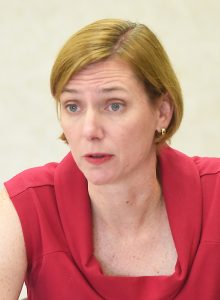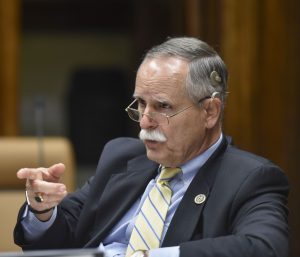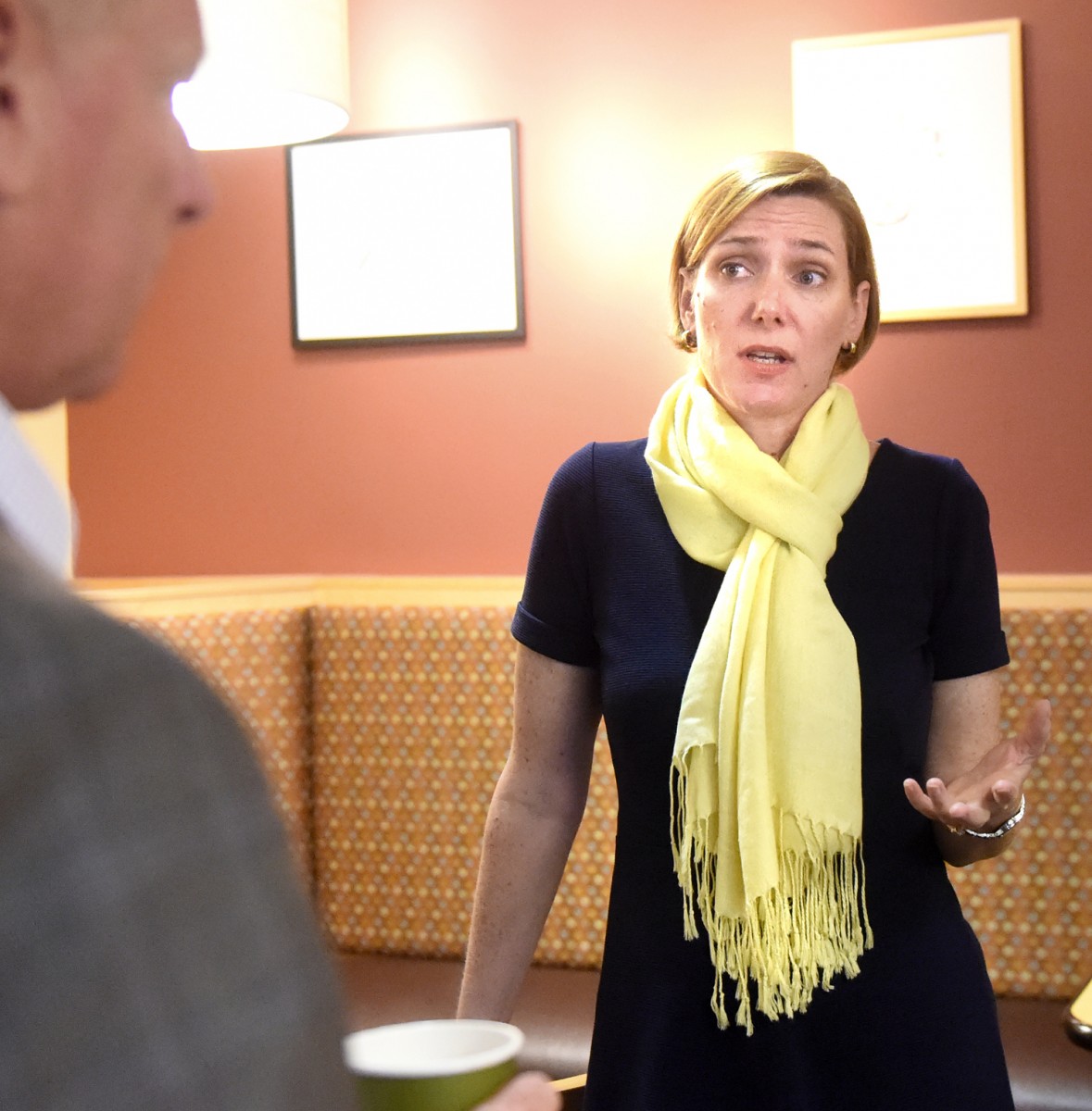MORGANTOWN — The final tally – unofficial pending canvassing – for West Virginia’s 1st District Congressional race was incumbent Republican David McKinley 128,725 votes (64.64 percent) and Democrat challenger Kendra Fershee 70,402 votes (35.36 percent).

“It obviously didn’t go the way we wanted in the end,” Fershee, of Morgantown, said Wednesday. “I’m proud of every single one of the votes we received. I’m proud of the campaign.”
Her intent, she said, was to change the conversation – to show that even a grassroots camp that doesn’t take corporate money can engage in the big process. “I think that really spoke to a lot of people.”
She did enough to win more than 70,000 votes in a district where she was essentially unknown and had never run for office before, she said. “I’m very happy about what we were able to do in connecting and getting the message out there.”

A look at the history of McKinley’s prior races shows that Fershee did about as well as better-known candidates. In 2014, state Auditor Glen Gainer took 36.04 percent of the vote. In 2016, former Taylor County Delegate Mike Manypenny took 31.03 percent of the vote.
Another relative unknown, progressive Democrat Sue Thorn, won 37.52 percent of the vote in 2012, but McKinley had just completed his freshman term and was still settling into his position.
The 1st District covers 20 counties. Fershee prevailed in only one: Monongalia, which also saw two Republican delegates swept out of the House of Delegates. In Mon, Fershee tallied 16,926 votes (54.77 percent) to McKinley’s 13,980 (45.23 percent).
Typically red-leaning Preston leaned heavily toward McKinley: he took 68.15 percent of the vote.
Perhaps more surprising is that McKinley also prevailed in blue Marion – the home of Democrat Sen. Joe Manchin – where the sole Republican state delegate in the three-seat 50th District fell to a Democrat challenger. McKinley took 58.18 percent of the vote in Marion.
Fershee said her campaign reflects a need for Democrats to talk more about their values. “We don’t do enough to tell people who we are.” They can’t talk just about policy; voters want to know the person behind the policies and what that person stands for.
Even if the voter disagrees completely on policy, she said, it would be hard to dislike a candidate who is open on what she stands for.
Fershee talked about freedom, she said, and others did the same. The public saw the concept develop that Democrats believe in freedom and saw Democrats describe what freedom looks like.
As far as what’s next, it’s too soon to say, she said. She has a job she loves – WVU law professor – and young children she’s looking forward to spending time with again.
“There is a role for me somewhere n helping West Virginia,” she said, but she doesn’t know what that role is yet. “I’m not giving up on that.”
Tweet David Beard @dbeardtdp Email dbeard@dominionpost.com




